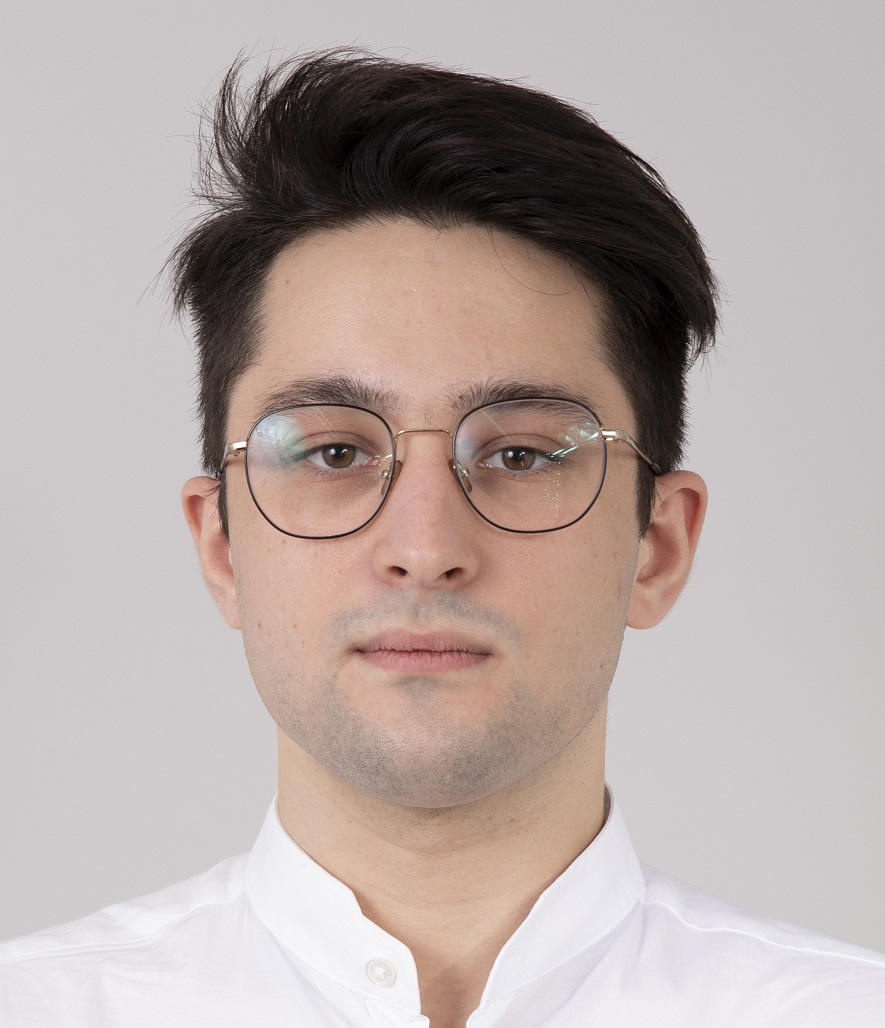HSE University Holds HSE Sber ML Hack
On November 17-19, The HSE Faculty of Computer Science, SBER and cloud technology provider Cloud.ru organised HSE Sber ML Hack, a hackathon based around machine learning. More than 350 undergraduate and graduate students from 54 leading Russian universities took part in the competition.
The participants were given the task of predicting the gender of a bank customer based on transactional activity from the SBER Risks Division. This information helps businesses develop banking products, as well as personalising services. As a key metric for evaluating the quality of the model, participants had to calculate ROC-AUC (a metric that allows the evaluation of the quality of a binary classification model).
For the first time at the Faculty of Computer Science, the competition was held on the DS Works.ru platform from Cloud.ru.
On the final day, the teams presented their solutions. The jury included experts from the Joint Department with Sberbank ‘Financial Technologies and Data Analysis’, the AI and Digital Science Institute, the Hackathon Club of the Faculty of Computer Science, Sber, Cloud.ru and RUTUBE.
The ‘Misiskovo’ team from Skoltech and MISIS won the competition, while the ‘BoilTheKettle’ team of third-year undergraduate students from HSE Faculty of Computer Science took second place. The bronze medal was awarded to the team from Central University, and the audience award went to the ‘Makaki v atake’ (‘Macaques in Attack’) team from the Moscow State University. All participants received prizes from Sber and other gifts.

Director of the AI and Digital Science Institute, Head of the Joint Department with Sberbank ‘Financial Technologies and Data Analysis’
‘The Joint Department with Sberbank together with the Hackathon Club held the largest hackathon at the faculty so far, with more than 350 participants taking part in the event. I would like to thank Sber ‘Risks’ Division for setting the task and participating in the expert committee, and the team from DS Works.ru platform from Cloud.ru for the infrastructure allowing us to automatically evaluate the quality of students' solutions.’

Oleg Travkin
Managing Director — Head of the Research Centre, Risks Division, Sber
‘The hackathon is a unique event. It embodies our commitment to innovation and the development of artificial intelligence. The task of determining the gender of the client for banking transactions, which we set for the participants, reflects our desire to constantly improve the quality of services and personalise our service for each client. Hundreds of young artificial intelligence specialists took part in this hackathon. I would like to thank HSE Faculty of Computer Science for their cooperation and support in organising this event. Our joint efforts will help attract new talented specialists in the field of AI.’

Nikita Lindemann
Data scientist, Cloud.ru
'This event turned out to be not only a source of inspiration for students, but also an excellent example of successful integration with current business tasks. The hackathon not only gave the participants an opportunity to demonstrate their professionalism, but also presented advanced technologies and innovations in the field of machine learning.'
First place — ‘Misiskovo’ team

Alexander Yugai
2nd-year student of the ‘Data Science’ master’s programme, Skolkovo Institute of Science and Technology
'The atmosphere of the competition was exciting, and the part with the defense of solutions added interactivity and tested our ability to present and defend our ideas. I was glad to meet a lot of new people, as the exchange of ideas and joint work on the solution creates a favorable atmosphere for growth and development.'
Second place — ‘BoilTheKettle’ team

Ruslan Galiullin
3rd-year student of the ‘Software Engineering’ programme, HSE University
'HSE Sber ML Hack was the first ML hackathon for me. The organisers have done a lot to make it interesting and convenient for the participants to work on the task: there was a leaderboard, and a large prepared dataset. Experts from SBER provided useful recommendations to the participants, which, I think, can be applied in real life situations.
The ‘BoilTheKettle’ team (Shamil Ziganshin, Maxim Kaverin and Viktor Demyanenko) includes some outstanding ML specialists from the Software Engineering programme, which is one of the keys to our success. I am grateful to the organisers of the hackathon and glad that my university has the opportunity to put our knowledge into practice in a competitive format, especially together with industrial companies. This really motivates us to work hard.'
Third place — Central University team

Alexander Lapin
4th-year student of the Information Science and Computation Technology, HSE MIEM, ‘Academy of Data Science’ programme, Central University
‘The students from Central University and I decided to start participating in hackathons with a team representing our university. Our choice fell on a friendly hackathon from the HSE Faculty of Computer Science and Sber. We are glad that we managed to win a prize and enjoy the unforgettable experience of participating in the hackathon!’
Audience Award — ‘Makaki v atake’ team

Ksenia Karavaeva
3rd-year student of the ‘Fundamental and Applied Physics’ programme, MSU
‘We will definitely remember this hackathon. During these two days, we managed to be initially sad that we were unable to send a solution, but then we had a lot of fun coming up with memes and making a presentation to defend our solution.’
See also:
HSE Scientists Optimise Training of Generative Flow Networks
Researchers at the HSE Faculty of Computer Science have optimised the training method for generative flow neural networks to handle unstructured tasks, which could make the search for new drugs more efficient. The results of their work were presented at ICLR 2025, one of the world’s leading conferences on machine learning. The paper is available at Arxiv.org.
Quantity over Quality: How Publication Activity Leads to Crisis
Participants of the 4th Fall into ML conference at HSE University held a discussion titled ‘Academia in Crisis: What Does the Future Hold?’ In particular, they examined why the number of scientific publications continues to grow, what the quality of these papers is, what expectations should be placed on researchers, and what role artificial intelligence plays in preparing academic articles.
Start of a Long Journey: Young HSE Scientists Contribute to Learning Theory at COLT 2025
Participation in high-level international events is crucial for the professional development of researchers starting their career in science. It provides an opportunity to exchange ideas, create promising teams, and make important connections. This summer, Denis Ryapolov and Askar Tsyganov, students of the Applied Mathematics and Computer Science programme and staff of the AI and Digital Sciences Institute at the Faculty of Computer Science of HSE University, attended the prestigious international Conference on Learning Theory, COLT 2025, which was held in Lyon, France. In an interview, they shared their experiences and impressions from the trip.
Analysing Genetic Information Can Help Prevent Complications after Myocardial Infarction
Researchers at HSE University have developed a machine learning (ML) model capable of predicting the risk of complications—major adverse cardiac events—in patients following a myocardial infarction. For the first time, the model incorporates genetic data, enabling a more accurate assessment of the risk of long-term complications. The study has been published in Frontiers in Medicine.
‘We Bring Together the Best Russian Scientists and AI Researchers at HSE University Site’
On October 25–26, 2024, HSE University’s AI and Digital Science Institute and the AI Research Centre hold the Fall into ML 2024 conference in Moscow. This year’s event will focus on the prospects in development of fundamental artificial intelligence, with SBER as its conference title partner.
HSE Researchers Demonstrate Effectiveness of Machine Learning in Forecasting Inflation
Inflation is a key indicator of economic stability, and being able to accurately forecast its levels across regions is crucial for governments, businesses, and households. Tatiana Bukina and Dmitry Kashin at HSE Campus in Perm have found that machine learning techniques outperform traditional econometric models in long-term inflation forecasting. The results of the study focused on several regions in the Privolzhskiy Federal District have been published in HSE Economic Journal.
‘The Goal of the Spring into ML School Is to Unite Young Scientists Engaged in Mathematics of AI’
The AI and Digital Science Institute at the HSE Faculty of Computer Science and Innopolis University organised a week-long programme for students, doctoral students, and young scientists on the application of mathematics in machine learning and artificial intelligence. Fifty participants of Spring into ML attended 24 lectures on machine learning, took part in specific pitch sessions, and completed two mini-courses on diffusion models—a developing area of AI for data generation.
Software for Rapid Detection of Dyslexia Developed in Russia
HSE scientists have developed a software tool for assessing the presence and degree of dyslexia in school students based on their gender, age, school grade, and eye-tracking data. The application is expected to be introduced into clinical practice in 2024. The underlying studies were conducted by specialists in machine learning and neurolinguistics at the HSE AI Research Centre.
‘Every Article on NeurIPS Is Considered a Significant Result’
Staff members of the HSE Faculty of Computer Science will present 12 of their works at the 37th Conference and Workshop on Neural Information Processing Systems (NeurIPS), one of the most significant events in the field of artificial intelligence and machine learning. This year it will be held on December 10–16 in New Orleans (USA).
HSE University Hosts Fall into ML 2023 Conference on Machine Learning
Over three days, more than 300 conference participants attended workshops, seminars, sections and a poster session. During panel discussions, experts deliberated on the regulation of artificial intelligence (AI) technologies and considered collaborative initiatives between academic institutions and industry to advance AI development through megaprojects.


